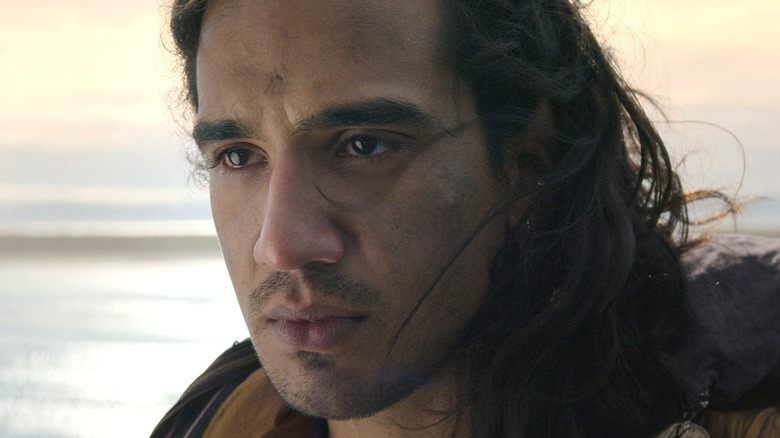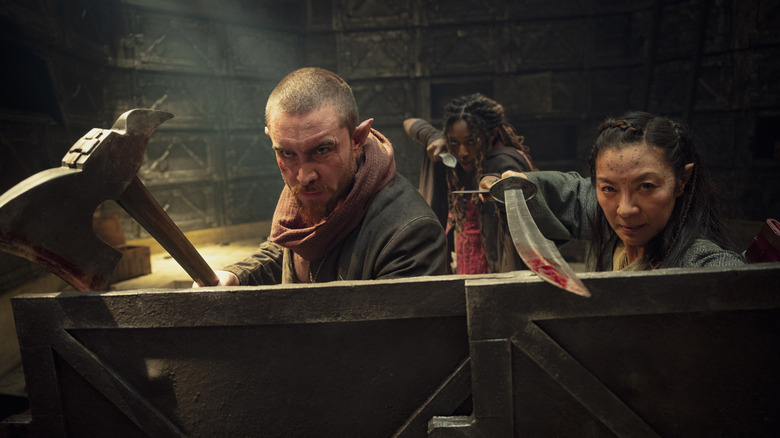The Witcher: Blood Origin Showrunner Says This Series Is Very Different From Its Predecessor
"The Witcher" universe is expanding in big ways even as the epic fantasy series goes through some changes that have proven both shocking and divisive. Of course, the biggest change is that Henry Cavill will be leaving the show after the upcoming Season 3, and will promptly be replaced by Liam Hemsworth in Season 4 (per Variety). Losing Cavill is a big blow to "The Witcher," and it's a move that hasn't been overly popular, with several fans of the series hitting the eject button and proclaiming the series dead after Cavill departs.
Still, Netflix seems to be all-in on the property, and they've even greenlit a prequel series titled "The Witcher: Blood Origin." The four-episode miniseries is set to his the premium streamer on December 25, just in time for the holiday season. "The Witcher: Blood Origin" will bring in its own list of top-tier acting talent, which includes the likes of Sophia Brown and Michelle Yeoh in leading roles. In addition to being a prequel, Declan de Barra, the showrunner for "The Witcher: Blood Origin" says the series will differ from its predecessor in other ways as well.
The world of The Witcher: Blood Origin is much harsher
During a recent interview with GamesRadar's Total Film, "The Witcher: Blood Origin" showrunner Declan de Barra spoke at length about the upcoming miniseries and he made it clear that it's not the same kind of show as its predecessor. "This is a very different type of Witcher," he said. "It is a rough and nasty prototype that's barely functioning, but you get the idea of how it's going to be refined later on."
Considering the time period for the show, this absolutely makes sense. "The Witcher: Blood Origin" takes place right around 1,200 years before the events of the main "The Witcher" series. In this time period, the Elves were still at the height of their powers, before humans showed up to destroy their culture and nearly wipe them out. Obviously, its shorter length of four episodes also makes it a completely different show, with a self-contained story focusing on the actual creation of the world's first Witcher, and what that means for the future of its world. It'll be interesting to see how the series connects itself to the events of "The Witcher" and fills out the fantasy world a little bit more.

